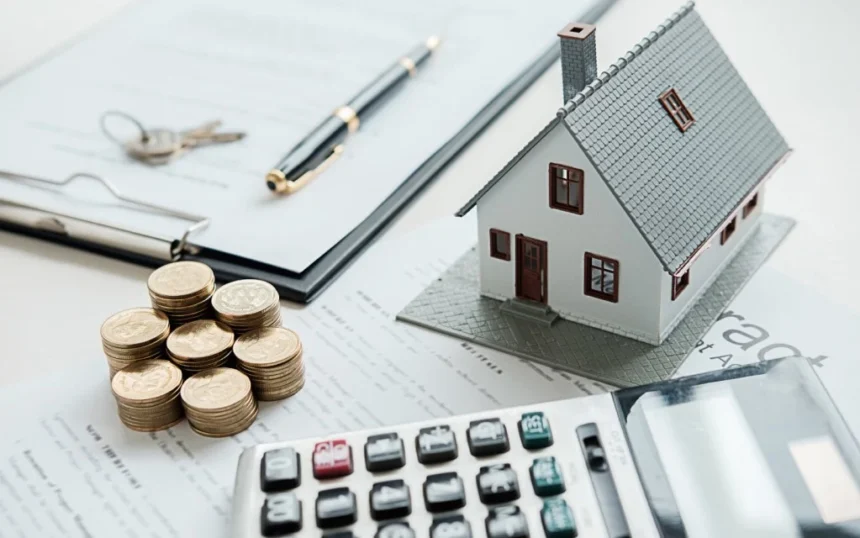One of the most significant decisions individuals face when it comes to housing is whether to buy a home or rent. Both options offer distinct advantages and disadvantages, and the choice between them depends on various factors, including financial considerations, lifestyle preferences, and long-term goals. In this article, we’ll explore the pros and cons of buying a home versus renting, helping you make an informed decision that aligns with your unique circumstances and priorities.
Buying a Home: Advantages and Considerations
Advantages:
1. Building Equity: One of the primary benefits of buying a home is the opportunity to build equity over time. As you make mortgage payments, you gradually pay down the principal balance of your loan, increasing your ownership stake in the property. Additionally, any appreciation in the value of the home can further boost your equity, potentially providing a valuable asset for future financial security.
2. Stability and Security: Homeownership offers a sense of stability and security that renting often cannot match. When you own a home, you have control over your living space and can make modifications or renovations to suit your preferences. Additionally, owning a home provides protection against rent increases and offers the potential for long-term stability in housing costs.
3. Tax Benefits: Homeownership comes with several tax benefits that can help reduce your overall tax liability. For example, mortgage interest and property tax payments may be deductible on your federal income tax return, potentially lowering your taxable income and saving you money on taxes each year.
4. Pride of Ownership: Owning a home can instill a sense of pride and accomplishment, as it represents a significant milestone in life. Many homeowners take pride in maintaining and improving their properties, creating a sense of belonging and community within their neighborhoods.
Considerations:
1. Upfront Costs: Buying a home typically requires a substantial upfront investment, including a down payment, closing costs, and other fees associated with the homebuying process. Depending on the price of the home and the location, these costs can amount to tens of thousands of dollars or more, making homeownership inaccessible for some individuals.
2. Maintenance and Repairs: As a homeowner, you are responsible for maintaining and repairing your property, which can incur additional expenses and time commitments. From routine maintenance tasks like lawn care and HVAC system inspections to unexpected repairs such as roof leaks or plumbing issues, homeownership requires ongoing attention and financial resources.
3. Limited Flexibility: Buying a home ties you to a specific location for an extended period, which can limit your flexibility in terms of employment opportunities, lifestyle changes, and personal preferences. If you anticipate needing to relocate frequently or prefer the freedom to explore different neighborhoods or cities, renting may be a more suitable option.
4. Market Volatility: The housing market is subject to fluctuations in property values and economic conditions, which can impact the value of your home and your ability to sell it in the future. While homeownership has historically been considered a sound long-term investment, there is always a degree of uncertainty and risk associated with real estate markets.
Renting: Advantages and Considerations
Advantages:
1. Flexibility: Renting offers greater flexibility and mobility compared to homeownership. Lease terms are typically shorter than mortgage terms, allowing renters to move more easily in response to changing circumstances such as job relocations, lifestyle changes, or financial constraints.
2. Lower Upfront Costs: Renting requires minimal upfront costs compared to buying a home. While renters may need to pay a security deposit and possibly the first month’s rent upfront, these costs are generally much lower than the down payment and closing costs required for purchasing a home.
3. Maintenance and Repairs: One of the benefits of renting is that landlords are responsible for maintaining and repairing the property. If something breaks or malfunctions, you can simply contact your landlord or property management company to address the issue, without having to bear the cost or hassle of repairs yourself.
4. Amenities and Services: Many rental properties offer amenities and services that can enhance the overall living experience, such as swimming pools, fitness centers, on-site maintenance staff, and concierge services. These amenities can add convenience and value to your rental experience without the expense and responsibility of ownership.
Considerations:
1. Lack of Equity: Unlike homeownership, renting does not provide the opportunity to build equity in a property. Rent payments go towards covering the landlord’s expenses and generating profit, rather than towards increasing your ownership stake in the property.
2. Rent Increases: Renters are subject to potential rent increases at the end of each lease term or upon renewal. While landlords are typically limited in the amount they can increase rent by local rent control regulations, rental rates can still rise over time, leading to higher housing costs and reduced affordability.
3. Limited Control: Renters have limited control over their living space compared to homeowners. Landlords may impose restrictions on decorating, modifications, or pet ownership, limiting renters’ ability to personalize their homes and make changes to suit their preferences.
4. Lack of Long-Term Stability: Renting provides less long-term stability compared to homeownership. Renters may face uncertainty about future rent increases, lease renewals, or changes in ownership or management of the property, which can create stress and insecurity over time.
Making the Decision: Factors to Consider
When deciding whether to buy a home or rent, it’s essential to consider your individual circumstances, financial situation, and long-term goals. Here are some factors to consider:
Financial Considerations: Evaluate your financial readiness for homeownership, including your savings, income stability, credit score, and debt levels. Calculate the costs of buying versus renting, including upfront expenses, ongoing housing costs, and potential returns on investment.
Lifestyle Preferences: Consider your lifestyle preferences and priorities, such as location, amenities, flexibility, and long-term plans. Determine whether owning a home aligns with your lifestyle goals and preferences or if renting offers more flexibility and convenience.
Market Conditions: Assess the current housing market conditions in your area, including property values, rental rates, and availability of homes for sale or rent. Consider how market trends and economic factors may impact your decision to buy or rent in the short and long term.
Future Plans: Think about your future plans and how they may impact your housing needs. Consider factors such as career aspirations, family dynamics, lifestyle changes, and personal goals when making your decision.
Ultimately, the decision to buy a home or rent depends on a variety of factors, including financial considerations, lifestyle preferences, and long-term goals. By carefully weighing the pros and cons of each option and considering your individual circumstances, you can make an informed decision that best suits your needs and aspirations. Whether you choose to buy a home or rent, the most important thing is to find a living arrangement that provides comfort, security, and fulfillment for you and your loved ones.






